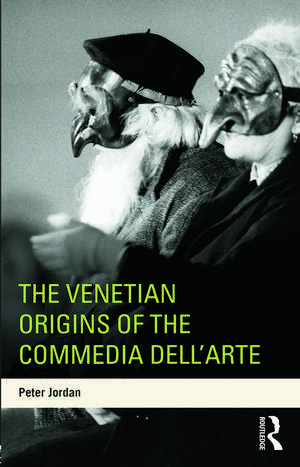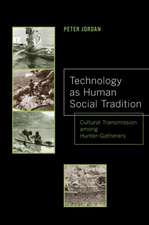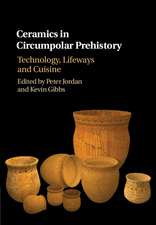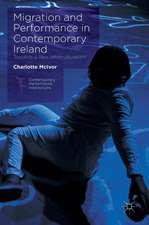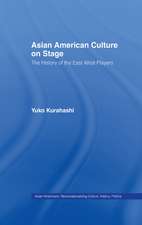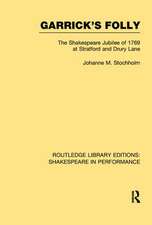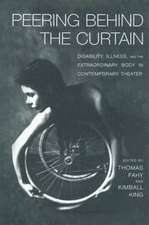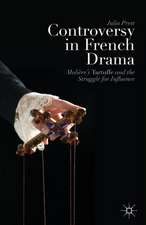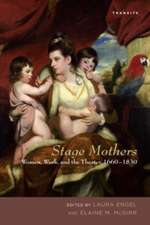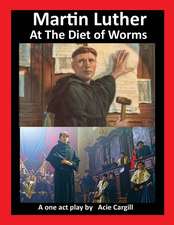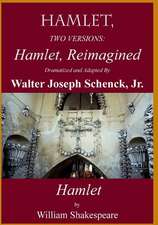The Venetian Origins of the Commedia dell'Arte
Autor Peter Jordanen Limba Engleză Paperback – 26 noi 2013
Rich with anecdotes, diary entries and literary – often ribald – comic passages, Peter Jordan's central argument has important implications for the study of Venetian art, popular theatre and European cultural history.
| Toate formatele și edițiile | Preț | Express |
|---|---|---|
| Paperback (1) | 478.51 lei 6-8 săpt. | |
| Taylor & Francis – 26 noi 2013 | 478.51 lei 6-8 săpt. | |
| Hardback (1) | 999.46 lei 6-8 săpt. | |
| Taylor & Francis – 6 dec 2013 | 999.46 lei 6-8 săpt. |
Preț: 478.51 lei
Nou
Puncte Express: 718
Preț estimativ în valută:
91.57€ • 95.48$ • 76.11£
91.57€ • 95.48$ • 76.11£
Carte tipărită la comandă
Livrare economică 20 martie-03 aprilie
Preluare comenzi: 021 569.72.76
Specificații
ISBN-13: 9780415698764
ISBN-10: 0415698766
Pagini: 272
Ilustrații: black & white tables, maps
Dimensiuni: 138 x 216 x 20 mm
Greutate: 0.36 kg
Ediția:1
Editura: Taylor & Francis
Colecția Routledge
Locul publicării:Oxford, United Kingdom
ISBN-10: 0415698766
Pagini: 272
Ilustrații: black & white tables, maps
Dimensiuni: 138 x 216 x 20 mm
Greutate: 0.36 kg
Ediția:1
Editura: Taylor & Francis
Colecția Routledge
Locul publicării:Oxford, United Kingdom
Cuprins
Part 1. The 'Commedia dell’Arte' The comedy of the profession Ancient and modern characteristics Innovation: risks and rewards The rise of the comic Part 2. Laughter, Humour and Comedy Evolutionary origins From ‘play panting’ to the ‘belly laugh’ The paradox Professional comedians Part 3. Magnifico and Zanni Venice and Bergamo First mentions The comedy of status A cultural lightning rod Part 4. Why Venice? The Most Serene Republic On the cusp of decline Freedom and diversity The winning combination A theatre for all Part. 5 The Companies of the Hose Background Names and titles Family ties Statutes and women Saint Ursula and the virgins Marriage and comedy Part 6. Professionals and Amateurs The theatre of the Companions of the Hose Comic innovators – Angelo Beolco and Pietro Aretino Innovative comics – Domenico Tagliacalze and Zan Polo Other contributions Part 7. Pantalone: A Case Study ‘Magnifico messer Pantalone de’ Bisognosi’ The name The costume The mask and other accoutrements The character Pantalone’s ‘Caprices’ Part 8. The First Companies and their Connections 1574 – The republic entertains royalty The success of the Gelosi Trouble with the Church A web of patronage Security and the seeds of demise Part 9. A Lingering Legacy Two centuries of evolution: Shakespeare; Jonson; Molière; Marivaux; Gozzi Goldoni’s reform Persistent traces Attempts at revival Museum piece or living art?
Notă biografică
Dr Jordan has been a theatre practitioner for over thirty years, touring throughout Europe and elsewhere, performing in English, Italian and Cantonese. He was a founder member of the Fortunati and an actor with TAG Teatro of Venice. He has variously acted in, directed and translated plays by Goldoni, Ruzante, Molière, Marivaux and Shakespeare. As an instructor, he has worked at a number of leading drama schools and universities, and was for many years Head of Acting at the Hong Kong Academy for Performing Arts. Apart from his acting and directing credits, his professional portfolio also includes fight direction, movement choreography, script development, musical performance and composition. His productions have toured to Canada and Australia. In recent years, he directed and composed for award-winning versions of Les Misérables, Cyrano de Bergerac and Friedrich Dürrenmatt’s The Visit, as well as directing the world premiere of Ho Chi Minh in Hong Kong.
Recenzii
'Peter Jordan has, in The Venetian Origins of the Commedia dell'Arte, written a impeccable, funny, learned and extremely well-documented book. Jordan was for many years the head of Acting at the Hong Kong Academy of Performing Arts and has thirty years of experience in European theatres as actor, composer, musician, director and translator.' Angelo Paratico, Asian Review of Books
'[The Venetian Origins of the Commedia dell’Arte] is a successful infusion of practical experience into research which is based on solid academic criteria...This book is thoughtful, comprehensive, and based on a full direct acquaintance both with archival sources and with recent scholarship...Jordan’s arguments provide genuine food for thought, and direct our attention more firmly to facts which cannot be overlooked.' Richard Andrews, Modern Language Review
'Peter Jordan is the first scholar to take up the “origin” challenge in years, and he rises nicely to the challenge in his important, interesting, and persuasive book...which makes a vital contribution to commedia dell’arte studies.' Robert Henke, Renaissance Quarterly
'[The Venetian Origins of the Commedia dell’Arte] is a successful infusion of practical experience into research which is based on solid academic criteria...This book is thoughtful, comprehensive, and based on a full direct acquaintance both with archival sources and with recent scholarship...Jordan’s arguments provide genuine food for thought, and direct our attention more firmly to facts which cannot be overlooked.' Richard Andrews, Modern Language Review
'Peter Jordan is the first scholar to take up the “origin” challenge in years, and he rises nicely to the challenge in his important, interesting, and persuasive book...which makes a vital contribution to commedia dell’arte studies.' Robert Henke, Renaissance Quarterly
Descriere
The Venetian Origins of the Commedia dell'Arte is a striking new enquiry into the late-Renaissance stirrings of professional secular comedy in Venice, and their connection to the development of what came to be known as the Commedia dell’Arte. The book contends that through a symbiotic collaboration between patrician amateurs and plebeian professionals, innovative forms of comedy developed in the Venice region, fusing ‘high’ and ‘low’ culture in a provocative mix that had a truly mass appeal.
Rich with anecdotes, images, and literary – often ribald – comic passages, Peter Jordan's central argument has important implications for the study of Venetian art, popular theatre and European cultural history.
Rich with anecdotes, images, and literary – often ribald – comic passages, Peter Jordan's central argument has important implications for the study of Venetian art, popular theatre and European cultural history.
